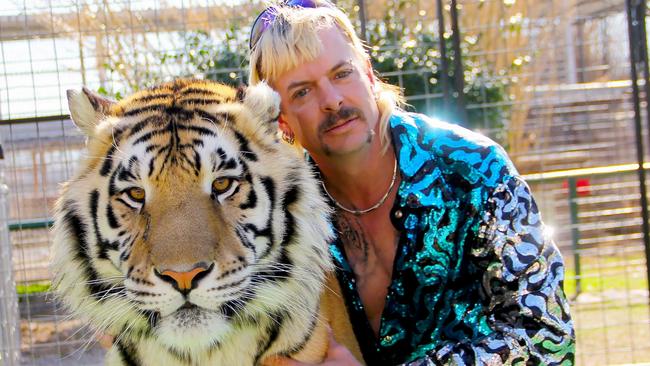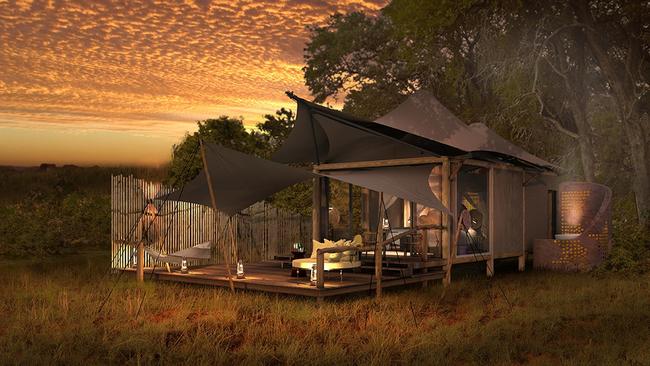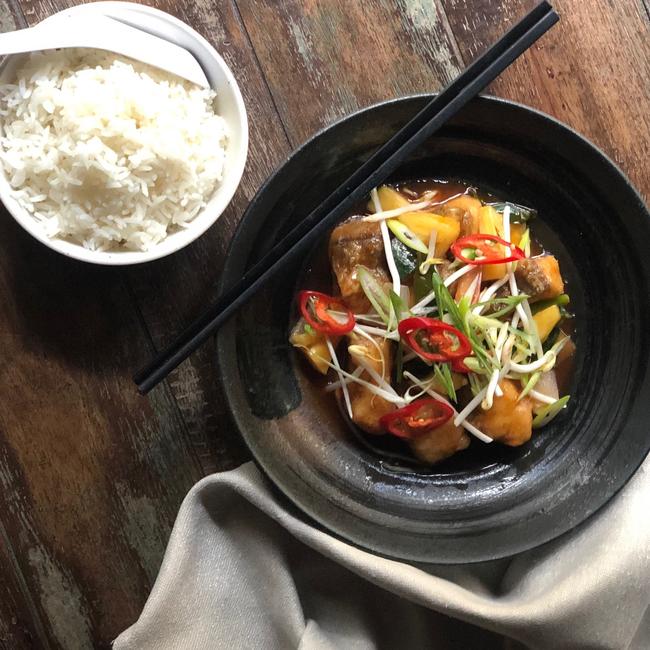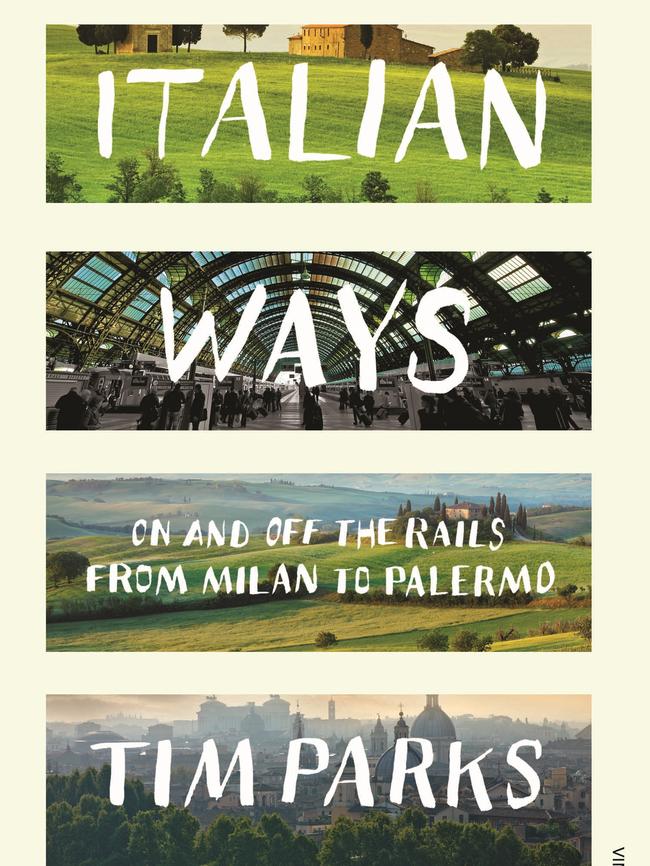In thrall to the big cats
Tiger King is not the only show earning its stripes in these dark times.

“Tyger tyger, burning bright, In the forests of the night,” wrote William Blake, and so it is that, less poetically, Tiger King has been the dazzler of these dark times. The Netflix docu-series “stars” Joe Exotica, who changes real surnames as frequently as husbands and whose crimes include shooting captive beasts and attempting to kill a wild cat enthusiast.
The “cast” is about as unlovely a group of people as you’d care to encounter (don’t mention the word deplorables) and the locations range from Wynnewood, Oklahoma, to Florida and Las Vegas, where a cub is stuffed in a suitcase for delivery to a hotel room.
The series is a grubby pleasure that leaves the viewer reaching for hand sanitiser and yearning for something more uplifting about big cats.
Look no further than David Attenborough, who turned 94 on Saturday. It’s easy to get lost in the wonders of the Attenborough BBC back catalogue, but there is no better series than his six-part Africa (2013). On YouTube, find the 1999 National Geographic film, In the Shadow of the Tiger, with fabulous footage of the endangered Amur tigers of Siberia.
And there is a Tiger Queen — a 2010 documentary about a battle for supremacy among tigers in India’s Ranthambhore National Park.
Ang Lee’s 2012 film, Life of Pi, earns its stripes as an inspirational tale about a boy adrift in a lifeboat with a Bengal tiger. But for light relief, screwball reigns supreme in the 1938 Howard Hawks classic, Bringing Up Baby, starring Katharine Hepburn, Cary Grant and a pet leopard (yes, it’s captive).
Back with Tiger King: Murder, Mayhem and Madness, don’t miss the postscript Episode 8 in which several players, now in social isolation, give their final verdict on Mr Exotica, who is in lockdown in jail in Fort Worth, Texas, for up to 22 years.
GRAHAM ERBACHER
-
Dream on

Fans of authentic African safaris that embody a focus on local involvement should keep this Botswana bush camp on the radar. Khwai Leadwood takes its evocative name from a tree-shaded setting in the community-run Khwai Concession in the wildlife-rich Okavango Delta on the edge of the Moremi Game Reserve.
Seasonal guided walks, tours in traditional mokoro dugout canoes and game-watching drives by day and night are all on the agenda for just 16 guests. Such a small scale is increasingly unusual in Africa and here the accommodation mix covers six tents that can be configured as doubles or twins and a family-sized option for four.
But this is no basic scouting bivouac, so expect ensuites with indoor and outdoor showers, mosquito-netted beds, cooling fans and shaded decks for lounging and binocular gazing. There’s a swimming pool, communal area and “African-inspired” cocktails that we presume are on the wild side. Junior guests must be at least seven years old; the camp is accessible via a 30-minute flight from Maun, Botswana’s safari gateway, to Khwai airstrip.
The property is due to open in the third quarter of this year; book now, with no deposit required, and pay by August 2020 for substantial discounts on stays of three nights or more. Standard fully inclusive seasonal rates per night from $US609 ($954); children aged seven to 15, $US305. The operator, African Bush Camps, runs a non-profit foundation supporting conservation, education and empowerment for the communities that surround its safari locations and a proportion of accommodation income goes to these initiatives.
SUSAN KUROSAWA
-
Spend it

Home cooks in NSW’s capital seeking inspiration for Friday night “iso” dinners can look to the cooking academy at Sydney Fish Market for fresh ideas. Sydney Seafood School normally conducts cooking classes on location at the waterside Pyrmont landmark.
COVID-19 has put paid to that, but the school has embraced the digital world with a series of online cooking classes that come complete with fresh seafood and other ingredients and instructional video by a leading chef.
Restaurants offering their expertise so far include Lucio’s Italian Restaurant in Paddington, Vietnamese eatery Red Lantern and Ormeggio at The Spit. Moroccan seafood and vegetable tagine, Singapore chilli crab, and sweet and sour barramundi (pictured) are among the dishes that have featured on the menu.
The kits cost $45 (for two diners) and are available for collection from the market, select Harris Farm stores, or for delivery (at extra cost) within a 15km radius of the venue.
PENNY HUNTER
-
Book Club
ITALIAN WAYS
By Tim Parks

British writer and scholar Tim Parks has lived in Italy since 1981, and to read his very funny musings about his adopted homeland is to glean insights way beyond the usual travelogue. He’s not as well-known as, say, Frances Mayes, but his writing is much more to my taste.
In Italian Ways (2013), he’s “on and off the rails”, aboard Ferrari-red speedsters and “miserable, poky trains where (passengers’) knees all touched”, from Milan to Palermo, then up the other side of the boot. He encounters plenty of larger-than-life locals, baffling vagaries of bureaucracy and inexplicable loopholes, all themes that recur through his works. To put it all in order, start with An Italian Education (1992) and Italian Neighbours (1996), and be introduced to his Italian wife, Rita.
Parks’s style is not all about diurnal dramas, and the frustrations of dealing with builders and bureaucrats, but serves to demystify the passionate operettas of Italian life. Take the beach, for example, which has nothing to do with getting wet but means parading to show off tans and the latest in huge sunglasses.
“The water just cannot, all Italians agree, be warm enough for human immersion before 10 o’clock … Children go wild to find themselves so near (the sea) but (are) unaccountably forbidden to get in it.” But back to that train trip, which will equally delight fans of Paul Theroux’s rattling journeys.
Parks rides the rails with priests and prostitutes, teachers and gypsies and, as ever, explores the dichotomies of la dolce vita. “Look … at how ticketing has been computerised and watch the way the frightening old on-board inspectors deal with it …” he writes. In one contretemps, he has a tremendous argument with a capotreno (train captain) about whether a PDF confirmation on his laptop can be counted as a ticket.
In the end, it’s not just about the railways but the broader complications of an expatriate’s life. Parks doesn’t reach enlightenment but completes his journeys unscathed. Final score: Italy: 10. Parks: 0. Again.
SUSAN KUROSAWA

To join the conversation, please log in. Don't have an account? Register
Join the conversation, you are commenting as Logout